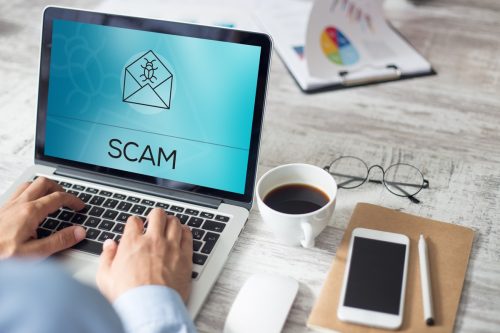If You Get This in the Mail, Call the Authorities, Police Warn

When you check the mail every day, you expect to find a few bills, a catalog or two, and maybe a card from a friend. For those of us who prefer good old-fashioned “snail mail” to email, you may have even more waiting for you, like correspondence with a dear friend. But lurking within your mailbox could also be something more sinister. Read on to learn what mailer police are now warning you to report immediately.
READ THIS NEXT: If You Get This in the Mail, Throw It Out Immediately, Police Warn.
Several different mail problems have been reported lately.

Junk mail is a particularly annoying aspect of life, and you likely receive more than your fair share. Recently, the Sioux City Police Department in Sioux City, Iowa, issued a warning about a separate counterfeit item that residents were receiving in the mail.
According to a post on the police department’s Facebook page, residents were getting stamps in their mailbox that they didn’t order. These weren’t just a thoughtful gift: The stamps were counterfeit and mailed from China. Recipients were cautioned to avoid using these stamps, as they could result in your mail being confiscated, officials warned.
But while it can be inconvenient to have your letters pulled and reported to the U.S. Postal Inspection Service (USPIS), another form of junk mail could be even more dangerous, and put your private financial information at risk.
Keep an eye out for this the next time you head to your mailbox.

Many of us are tired of hearing about scams and fraud attempts, but unfortunately, schemers keep getting craftier. Instead of targeting you just by phone or email, fraud attempts are now going retro and being made through the mail.
On June 13, Sheriff David L. Dauzat of Avoyelles Parish in Louisiana issued a warning about mailings that have been sent out to defraud citizens, according to a press release. The letters include Dauzat’s name, reading “RE: DAUZAT SHERIFF, Purchase date of 07/2020, Potential lapse of warranty coverage,” which may prompt recipients to think they’re getting a legitimate warning. A specific mailing sent to a targeted victim showed that the scammers were trying to sell American Home Protect “coverage.”
The letter also states, “Failure to call and prevent a potential lapse of coverage could result in your being liable for all costs associated with any home repairs,” instilling a false sense of urgency.
RELATED: For more up-to-date information, sign up for our daily newsletter.
Revealing personal information can have serious consequences.

Receiving something you believe to be from the police can be troublesome, and you may be tempted to act immediately. However, Dauzat reassured citizens that the authorities will never ask you to purchase any form of coverage, including home protection or extended vehicle coverage. “We do not conduct this type of business and citizens should be very cautious not to provide any personal or financial details to them,” the press release reads.
A telltale sign of this fraudulent mailer is the phone number listed, 1-855-277-3562. Rather than connecting to the Avoyelles Parish Sheriff’s Office (APSO), when you type the number into Google, you will see reports alerting you about the scam. According to the Sheriff’s Office press release, this is likely a spoofed number or one associated with a burner phone. To avoid getting caught, scammers generally change these numbers often.
In fact, similar mailers were recently sent out to members of 3Rivers Federal Credit Union, which listed a different number and cited an issue with a mortgage. When calling that number, 3Rivers warns that you could be connected with a real person or an automated recording. Either way, be sure not to provide any information over the phone.
If you get this in the mail, call your local police station.

The APSO asks anyone who receives this mailer to report it to your local law enforcement agency. You can also file a complaint with the USPIS and your state’s attorney general’s office.
Keep an eye out for other warning signs, which include asking you to confirm your personal information. or make a payment through something other than a credit card. Scammers also sometimes include suspicious-looking documents and fake government seals, the police warned. If you receive something you think is from your mortgage company, always double-check the account numbers—a fraudulent mailer will not match yours, 3Rivers said.
“Mail scammers will try to get you to cooperate with the scheme in various ways—ranging from exciting offers to intimidating threats,” the APSO press release said. “Regardless of their message, the goal of the mail scam is to get you to either send money or provide your personal information. Any fraud that uses the U.S. Mail—whether it originates in the mail, by phone, or online—is mail fraud.”
READ THIS NEXT: If You Get an Email From the USPS With These 3 Words, Don’t Click on It.